Just In
- 2 hrs ago

- 3 hrs ago

- 6 hrs ago

- 6 hrs ago

Don't Miss
- Finance
 Rs 7.50/Share Dividend: Adani Group Cement Company Reports Strong Q4 Results; Profit Surges 2x YoY
Rs 7.50/Share Dividend: Adani Group Cement Company Reports Strong Q4 Results; Profit Surges 2x YoY - Movies
 Heeramandi Premiere: Newly Engaged Aditi Rao Hydari Dazzles In A Multi-Coloured Anarkali Set; Guess The PRICE
Heeramandi Premiere: Newly Engaged Aditi Rao Hydari Dazzles In A Multi-Coloured Anarkali Set; Guess The PRICE - Education
 Tamil Nadu SSLC Results 2024: Number of Ways you can check the Results
Tamil Nadu SSLC Results 2024: Number of Ways you can check the Results - News
 Rajnath Singh Or Nitin Gadkari Could Have Been PM: Mamata Banerjee's Dig At BJP
Rajnath Singh Or Nitin Gadkari Could Have Been PM: Mamata Banerjee's Dig At BJP - Automobiles
 Bajaj To Offer Chetak Electric Scooter At Lower Price Point: All Details Here
Bajaj To Offer Chetak Electric Scooter At Lower Price Point: All Details Here - Sports
 Bangladesh vs Zimbabawe: Will Shakib Al Hasan Play Home T20 Series In May Or Not?
Bangladesh vs Zimbabawe: Will Shakib Al Hasan Play Home T20 Series In May Or Not? - Technology
 Qualcomm Reveals Snapdragon X Plus Chip for Laptops: 10 Core CPU, On-Device AI, & Much More
Qualcomm Reveals Snapdragon X Plus Chip for Laptops: 10 Core CPU, On-Device AI, & Much More - Travel
 Escape to Kalimpong, Gangtok, and Darjeeling with IRCTC's Tour Package; Check Itinerary
Escape to Kalimpong, Gangtok, and Darjeeling with IRCTC's Tour Package; Check Itinerary
Nasal Polyps: Is It A Serious Condition? Know About Its Causes, Symptoms And Treatment
Nasal polyps are noncancerous fleshy outgrowths that grow in the lining of the nose or sinuses. They are in the shape of teardrops or grapes and yellow-brown or pink in colour. The nasal polyps eventually hang down through the lining as they grow bigger.
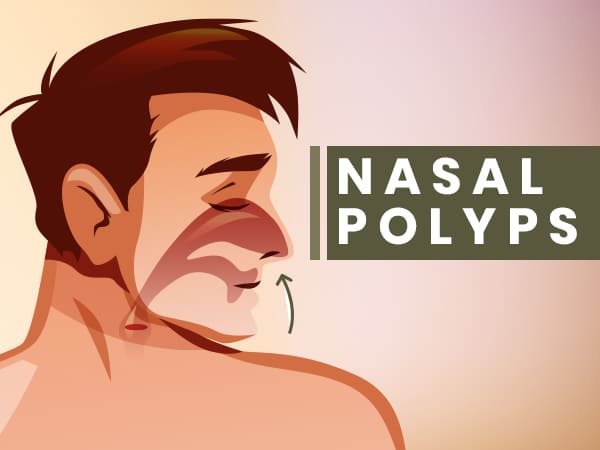
The polyps can grow in either a single nostril or both. When they are small, no symptoms occur. As they grow big and in clusters, they cause frequent infections, breathing difficulties and affect the olfactory nerve, which is related to the sense of smell. Nasal polyps are more common in middle-aged adults and males. Take a look at its details. [1]

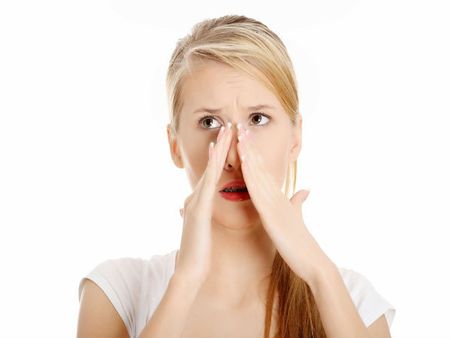
Causes Of Nasal Polyps
Mucosa or mucous membranes are tissue type that lines the nasal cavity. They are usually moist and prevents the entry of dirt or germs into the nose. During allergy or infection, they get inflamed or red and produces fluid to wipe out all the pathogens. When the condition gets prolonged or left untreated, the mucosa takes a form of a polyp and cause blockage in the nasal passage.
Researchers are still unable to find the exact cause for nasal polyps. They are trying to understand why only in some people, the inflammation in the nose results in polyps while in others, did not. Some evidence proves the difference in the immune system response in the mucous membrane that causes or does not cause the condition. In some cases, polyps are hereditary. [2]
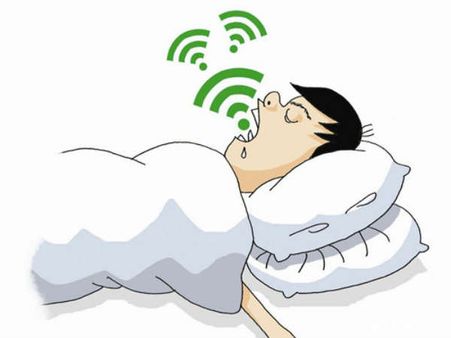
Symptoms Of Nasal Polyps
Common symptoms of nasal polyps include: [3]
- Persistent runny nose
- Persistent blocked nose
- Minimal or no sense of smell
- Severe headache
- Itchiness around the eyes
- Snoring
- Sleep apnea (severe case)
- Double vision (severe case)
- Facial pain
- Postnasal drip (Excess drip of mucous through the back of the nose or throat)
- Frequent nosebleeds
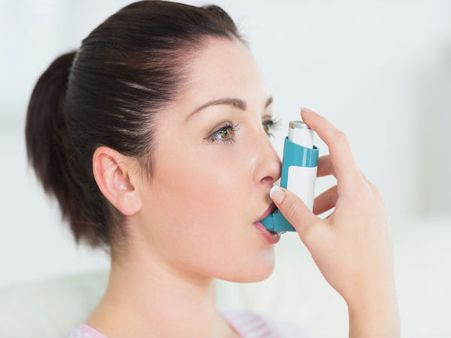
Risk Factors Of Nasal Polyps
Nasal polyps are frequently linked to long-term inflammation in the nose caused due to various conditions. The risk factors of nasal polyps include:
- Asthma [4]
- Sinus infection (chronic) [5]
- Hay fever
- Cystic fibrosis (hereditary diseases of the lungs)
- Churg-Strauss syndrome (inflammation of the blood vessels)
- Sensitivity to nonsteroidal anti-inflammatory drugs (aspirin)
- Fungal sinusitis (inflammation of the mucosa due to fungal infection)
- Vitamin D deficiency [6]
- Genetics
- Age (young or middle-aged)


Complications Of Nasal Polyps
When left untreated, nasal polyps can cause blockage in the airflow and frequent irritation in the nose. They may lead to conditions such as:
- Obstructive sleep apnea (a condition when a person stops breathing during the sleep) [7]
- Chronic asthma
- Sinus infection (when polyps block the drainage from sinuses)
- Rhinosporidiosis (bleeding polyps)

Diagnosis Of Nasal Polyps
Diagnosis for nasal polyps are carried out by the following methods:
- Physical examination: It includes examining the nose and asking questions related to the history of polyps in the family.
- CT scan or MRI: To view the internal structure of the nose and look for signs of polyps, their exact size, location and severity (just one polyp or several).
- Allergy test: To know the underlying cause of the inflammation. [8]
- Cystic fibrosis test: Carried out when the patient is a child. In this, tests for genetic diseases is carried out such as cystic fibrosis.
- Polyp biopsy: Here, a sample of polyp is taken and tested for signs of cancer.

Treatment Of Nasal Polyps
Treatment for nasal polyps is done based on the age and severity of the condition. They include the following methods:
- Medications: To reduce the inflammation caused due to infection or allergy. Antibiotics are also prescribed to reduce the size of the polyps. [9]
- Nasal steroids spray: To open up the blockage in the nose and also to reduce runny nose.
- Surgery: When polyps get severe or when the patient does not respond well to medications or other treatment methods.
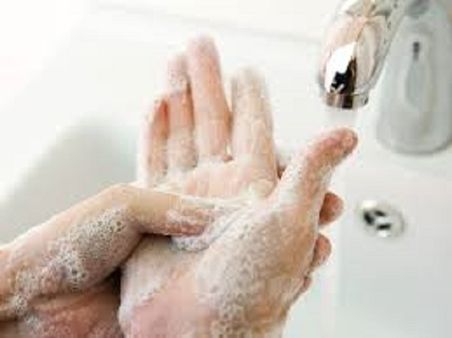
How To Prevent Nasal Polyps
- Avoid inhaling substances that may irritate the nose such as tobacco, chemical fumes or dust.
- Practise hand hygiene to prevent entry or infections through dirty hands.
- Install a humidifier at home and maintain its cleanliness to prevent bacterial outgrowth.
- Use a nasal rinse to remove allergens from the nose.
- Follow up with your doctor regarding allergy treatment or asthma which may cause you polyps in the future.

Common FAQs
1. Are nasal polyps dangerous?
Ans. Nasal polyps are not life-threatening but they may cause damage to your olfactory nerve (sense of smell) and loss of taste if left untreated. Such factors may interfere with your day-to-day life. Also, the long-term runny, itchy and blockage in the nose can make you irritated with your own condition.
2. How do you get rid of nasal polyps naturally?
Ans. Nasal polyps can be treated naturally with the following methods:
- Steam inhalation
- Inhaling tea tree oil
- Consuming chamomile
- Inhaling eucalyptus oil
- Drinking peppermint tea
- Including turmeric and garlic in foods
3. Do nasal polyps need to be removed?
Ans. When nasal polyps are small, they can be managed with certain medications which can shrink their size and reduce the inflammation. However, when they go untreated, their size and numbers increase. They get visible from the surface of the nose causing a blockage in the air passage. During this time, surgery is essential to make a passage for airways.


 Click it and Unblock the Notifications
Click it and Unblock the Notifications




